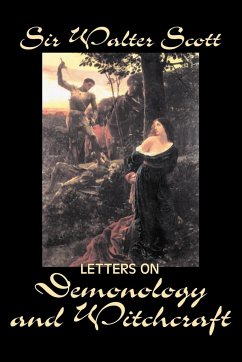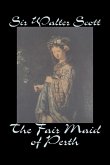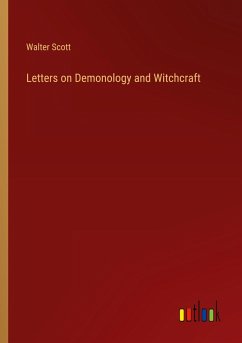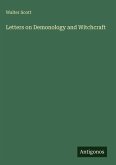Scott's approach to the subject is one of skepticism and rational thought -- superstitions and beliefs are often the cause of a lack of understanding of strange cultures and religions. He ends the book with an fervent hope for his countrymen that ". . . the sense of humanity is too universally spread to permit them to think of tormenting wretches till they confess what is impossible, and then burning them for their pains." The books does indeed take the form of letters covering areas of demonology and witchcraft from biblical times to current day.
Bitte wählen Sie Ihr Anliegen aus.
Rechnungen
Retourenschein anfordern
Bestellstatus
Storno








